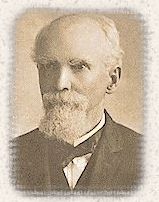
Active or Passive Response?
Here and here, we defined the word of prophecy as a spiritual gift and how during this season of Advent, we especially need to seek the prophetic word. Today, we reflect on how to respond when a prophetic word is given by the Holy Spirit.
What should our response be to a confirmed prophetic word (1 Cor. 14:29)? Do we just sit around and wait? Do we just discuss it, debate it, or analyze it? Is it possible that the Holy Spirit desires for us to pray this move of God—an inbreaking of the kingdom—into existence? The Holy Spirit calls us to obey Isaiah’s injunction, “Seek the Lord while you can find him. Call on him now while he is near†(Isa. 55:6, NLT). We seek the gift of prophecy for we hunger for God’s direction in the midst of the chaos and confusion of this world (1 Cor. 14:1).
The prophetic word is an invitation to enter God’s promises, to receive God’s provision, and to release God’s kingdom (1 Cor. 14:1-5). When a prophetic word is given to us, we are called to pray the promise’s fulfillment, believe the promise’s pledge, and obey the promise’s command. In other words, we are not to sit passively waiting for a prophetic word to come true, but we are called by God to be actively cooperating with the Holy Spirit to see that word fulfilled.
Elijah is a biblical example of responding to God’s prophetic word: he acted and prayed into existence God’s promise of rain (1 Kings 18:1, 41-46).
Elijah sought the Lord even when the word of the Lord was clear and unequivocal; he did not wait passively, but pursued Yahweh while he could be found. God promised Elijah, “Go, present yourself to Ahab, and I will send rain on the earth†(1 Kings 18:1, NKJV). First, Elijah obeyed the word of the Lord and was immediately obedient to the heavenly command. For in verse two, Elijah went and presented himself to his greatest enemy King Ahab. He obeyed despite the threat of rejection, persecution, and even possible death.
Second, Elijah grabbed hold of the word of God and believed it for he heard “the abundance of rain†before it was ever visible (v.41). Third, Elijah sought the Lord in prayer basing his request for rain on the promise of God (v.1). Fourth, Elijah humbled himself before the Lord, not demanding, but requesting that God honor his promise of rain. “And Elijah went up to the top of Carmel; then he bowed down on the ground, and put his face between his knees . . . †(v. 42). Fifth, Elijah was earnest; he wanted to see the word of the Lord fulfilled (James 5:17). He persevered until the answer came, for “seven times†he looked longingly to the sea for rain (v.43).
Sixth, Elijah was undeterred for he continued to believe God even after six times of seeing no results from his prayers. Seven, Elijah acted on God’s prophetic word for he gave Ahab instructions to drive through the Jezreel Valley before rain flooded the area. Elijah based his orders on seeing a cloud as small as a man’s hand, thus Elijah was a man of faith (v.44). Elijah saw his prayer answered (v.45) and became an example for us all (James 5: 16a-18). [F. B. Meyer, Elijah: And the Secret of His Power (Fort Washington, PA: Christian Literature Crusade, 1978), 90-100.]
Conclusion, Elijah is biblical example for receiving a prophetic word: we should pray until the promise is fulfilled. The great prayer warrior, E. M. Bounds, instructs us in the same manner:
All revivals are dependent on God, but in revivals, as in other things, he invites and requires the assistance of man, and the full result is obtained when there is cooperation between the divine and the human. In other words, to employ a familiar phrase, God alone can save the world, but God chooses not to save the world alone.
E. M. Bounds, Purpose in Prayer found in The Complete Works of E. M. Bounds on Prayer (Grand Rapids, MI: Baker Book House, 1990), 360.

